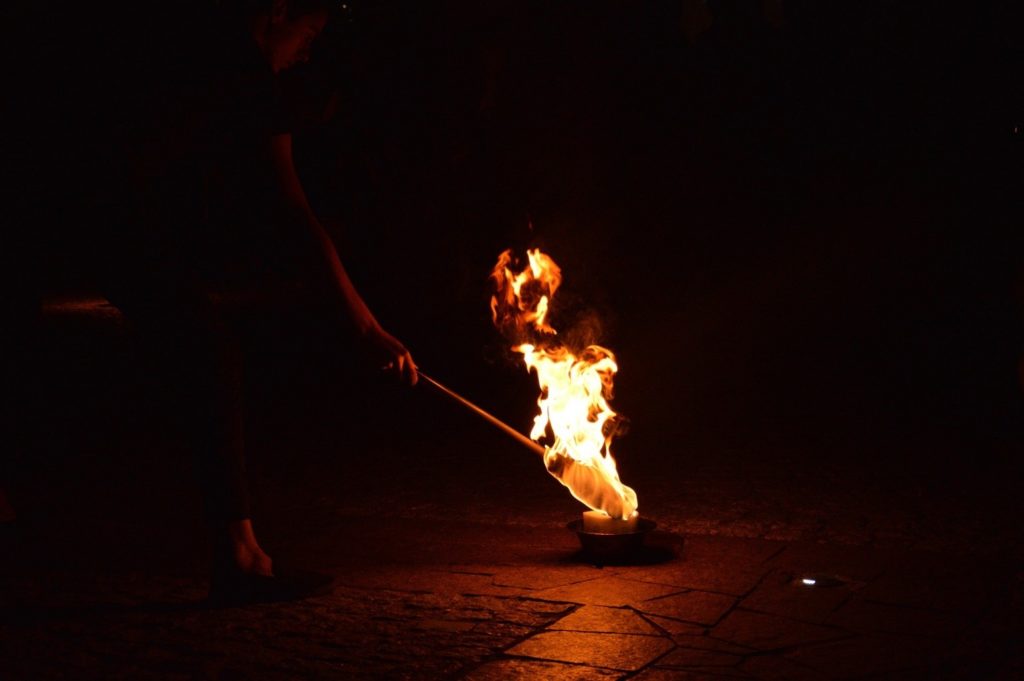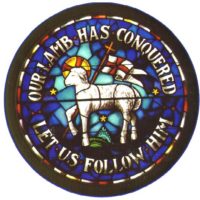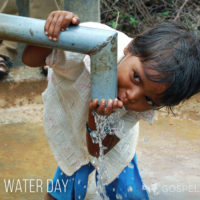
NALERIGU, Ghana – William Huan and his wife are missionaries working in the Mamprusi kingdom of Ghana. Not long after they arrived, they observed an unexpected spectacle. It was the annual Bugum Toobu fire-throwing festival.
With drums beating and the rapport of guns shooting into the evening air, the king emerged with a flaming torch and threw it to the ground amid the waiting crowd. Young men who had gathered sheaves of grass rushed to the burning fire, lighting their makeshift grass torches. All the while the people in the street were celebrating around this strange scene.
When the Huans learned the story behind the festival, they recognized a bridge they could use to connect the love of Christ in a way that would be meaningful for the locals.
The festival originated following an incident when, many years ago, the king’s young son had fallen soundly asleep under a tree. When he failed to come home that night, the king and his people lit torches and went searching for the young lad. Finding him in deep sleep, the tribe assumed that the tree was the home of evil spirits, so they used their torches to burn it to the ground.
The story made the Huans think of the three parables in Luke 15 in which lost things were found. As they worked to improve their language skills, they realized how well the story of the one lost sheep from that same chapter in Luke, related to the fire festival.
When the time arrived for the next Bugum Toobu celebration, the Huans shared the similar Bible stories with the villagers. As they began sharing, the villagers were so amazed that they ran to bring their friends to hear the truth about the God who loves them and is seeking the lost to bring them home to Him.
This story is, indeed, good news but there is a lesson to be learned. Huan explained,
“Although the Fire Festival is specific to my corner of the world, the stories in Scripture are not. Yes, they occurred in a specific time, place, and cultural context, but they reveal universal truths of God’s revelation to all mankind for all time. That means the Bible is relevant to your neighbor from a different generation, to your work colleague of a different race, to the immigrant you meet from a different country, and to the folks across town from a different social class.
He concluded by urging believers to find out what makes others:
“Celebrate, mourn, and stir; then find a Bible story that connects with those catalysts. Be humble and patient, and these pursuits will grow in you a love for other people who might at first seem so different from you. God will open your eyes to ways you can build bridges from their stories to His story.”
Sources:




